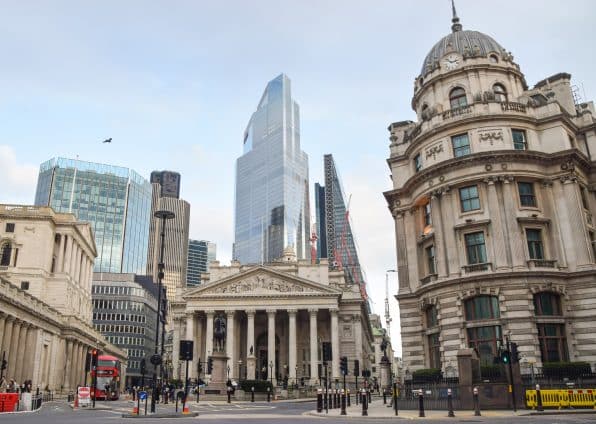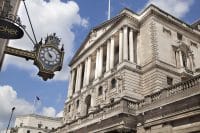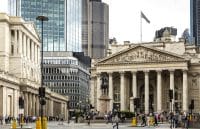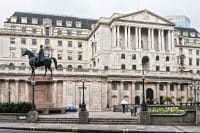Home » UK Business & Employment News • UK Business News » Bank of England expected to raise interest rates for the 14th time
Bank of England expected to raise interest rates for the 14th time
https://www.whatjobs.com/news/united-kingdom/uk-business-news/bank-of-england-expected-to-raise-interest-rates-for-the-14th-time

The Bank of England is expected to increase interest rates for the 14th consecutive time as part of its ongoing efforts to combat persistently high inflation rates.
Economists predict the bank will increase its base rate from 5 to 5.25 percent.
This could result in higher interest rates on mortgages and loans for some people, but also higher savings rates.
Read More: TUC calls on Bank of England to halt interest rate increases
The UK has been grappling with unusually high inflation, which has placed major pressure on households.
This potential increase to 5.25 percent would mark a smaller jump than the dramatic rise from 4.5 to 5 percent in July, signaling some signs of easing price pressures.
June saw inflation drop more than expected, but at 7.9 percent, it remains significantly higher than the bank's targeted two percent.
Pantheon Macroeconomics said the lower-than-expected inflation figures mean policymakers may not need to raise interest rates as much as previously expected.
Read More: Concerns mount for the Bank of England as higher wages drive price rises
The bank aims to make borrowing more expensive, leading to reduced consumer spending and easing inflationary pressures.
But the bank must carefully balance the risk of raising rates too aggressively, which could cause an economic slump, with the risk of not raising them enough, leading to further inflationary surges.
The Institute of Economic Affairs (IEA), a free market think tank, says the bank has to wait for previous interest rate increases to take effect before further rate hikes.
Read More: US job openings surge fuels speculation of interest rate hike
Trevor Williams, a member of IEA and former chief economist at Lloyds Bank, said: ''It will take some time for previous rate rises and falling global commodity prices to feed into lower inflation.
"Further rate rises are unnecessary and could do some economic damage without lowering inflation any faster. The UK economy is on the precipice of a sharper slowdown.”
The UK housing market is already showing signs of being impacted by higher rates, with house prices experiencing their sharpest annual decline in 14 years as of July.
Need Career Advice? Get employment skills advice at all levels of your career
Prime Minister Rishi Sunak said inflation isn't decreasing as rapidly as desired but believed people could "see light at the end of the tunnel".
The rate increase would affect people differently, with mortgage holders on variable or tracker mortgages facing higher borrowing costs.
However, those with fixed-rate deals would be protected from rising interest rates.
Around 800,000 mortgage deals are set to expire by the end of this year, and an additional 1.6 million will expire in 2024.
For savers, the rate increase could translate into better returns on their savings.
Follow us on YouTube, Twitter, LinkedIn, and Facebook.














